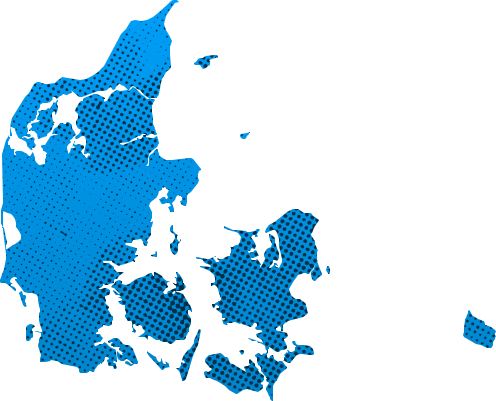
Volunteer statistics (ILO)*
Source: ILOSTATS. The data is collected by ILO from national statistical offices. As national statistics on volunteer work are produced using a variety of approaches and tools, direct and cross-country comparisons are not recommended. For more information, visit https://ilostat.ilo.org/topics/volunteer-work/
Total volunteering by gender
Direct volunteering by gender
Organization-based volunteering by gender
Measurement work
Data source
- 2007
- 2008
-
2009
- Time Use Survey
- 2010
- 2011
- 2012
- 2013
- 2014
-
2015
- Social Survey
- 2016
- 2017
-
2018
- Other
-
2019
- Other
-
2020
- Other
- 2021
- 2022
- 2023
- 2024
- 2025
- 2026
Laws, Policies, Schemes on Volunteering
Does the country have a piece of legislation on volunteering?
No data
Does the country have a national policy, scheme, plan or strategy specific to volunteering?
No data
Does the country have a sectoral and cross-sectoral policy, scheme, plan or strategy that mentions volunteering?
No data
VNR Reporting
Report for the Voluntary National Review
View sourceReporting positive contribution of volunteering to the SDGs
Paragraph 1, page 64
Within the youth sector, several organisations are increasingly addressing and adapting the SDGs in their strategies and activities, leading to further strategic interest and dialogue across the sector and among its volunteer members. Still, this commitment is primarily to be found in the youth organisations engaged in development cooperation with partners in the Global South. Focus on domestic implementation across the sector is growing, but needs to be further promoted, accompanied by a comprehensive coordination mechanism.
Paragraph 2, page 63
Civil society constitute a critical pillar in Danish society and democracy in which young people are actively involved. Danish youth organisations enjoy an enabling space and good structural conditions, as well as a long tradition of civil involvement and political influence. The sector promotes democratic communities based on core values such as participation, dialogue, volunteerism, inclusion and influence. Furthermore, the youth sector has long proven its effectiveness in including and empowering both vulnerable and marginalised young people, promoting a more inclusive and equal society related to the key principle of “leaving no one behind”.
No mentionVoluntary National Review 2021 Denmark
View sourceReporting positive contribution of volunteering to the SDGs
Paragraph 1, page 31
Furthermore, a significant amount of Danes are volunteers in associations all around Denmark; incorporating them in the implementation will ensure broad public support for the SDGs.
Paragraph 2, page 37
Furthermore, a study conducted in 2018 shows that 50% of Danish NGOs use the SDGs in their communications and campaigning work 10. 50% of the organisations also work with the SDGs in their efforts to inform and mobilise the public. The public as it is defined here covers a wide range of members, volunteers, and the wider population.
Paragraph 3, page
“World’s Best Morning” – Every year in September, NGOs gather for a large nationwide morning event in Denmark, where 2,500 volunteers hand out a newspaper with a selection of the World’s Best News. Politicians from across the political spectrum, international ambassadors in Denmark, and other enthusiasts ranging from non-profit organisations to private sector companies support the event, which each year highlights one or more of the SDGs.
Paragraph 4, page 38
Outreach in the educational sector – Since 2018, there has been a variety of inclusive and participatory outreach initiatives produced for the educational sector. These UNA-DK initiatives were carried out by young volunteers in the School Service, and through the utilisation of web-based platforms such as www.globalis.dk and the app-based SDGs at Stake’.
Paragraph 5, page 39
The youth organisations promote democraticcommunities based on core values such as participation, dialogue, volunteerism, inclusion, and influence.
Paragraph 6, page 40
Within the youth sector, several organisations and NGOs have been addressing and adopting the SDGs in their strategies and activities for years, leading to further strategic interest and dialogue across the sector and among its volunteers. This commitment is evidenced by youth organisations engaged in development cooperation with partners in the Global South.
Paragraph 7, page 61
One example is a partnership with the participation of the DAFC for almost two decades, together with the youth organisation 4H and retailer REMA 1000, and several hundred volunteers involved in the non-profit Food and Nutrition Camps. During five busy days each year, we work to give Danish children food enjoyment, food courage, knowledge of where food comes from, and show them how to combine it.
Paragraph 8, page 112
Promoting inclusion: The Rate Adjustment Pool agreement for 2018-2021 allocates DKK 96.6 million for a civil society strategy. The strategy will help to combat loneliness and promote participation in communities, so that vulnerable children, adults, the elderly and people with disabilities who are not part of the labour market increasingly participate in voluntary communities as volunteers.
Paragraph 9, page 145
The Government’s leave no one behind philosophy is also evident in its “2020 goals for the socially vulnerable”, which support and facilitate initiatives to ensure good and healthy food for socially disadvantaged people. Many Danish food businesses, including large retail chains, support the distribution of surplus food to socially disadvantaged people via donation. The donated food is received by a network of local, regional and nationwide volunteer organisations, which redistribute it to socially disadvantaged people. It is also used to prepare meals on a daily basis, e.g. for people with substance abuse problems, homeless people, etc.
No mention